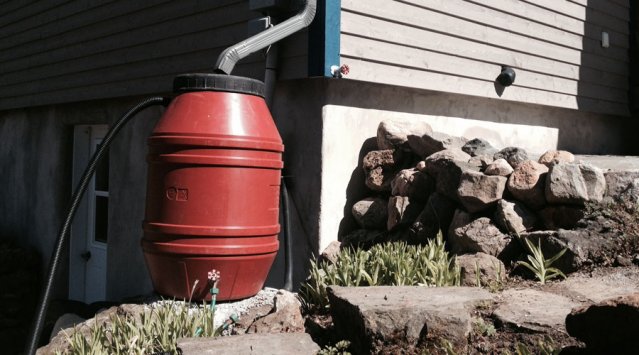Master Efficient Water Management in Your Home Garden

Master Efficient Water Management in Your Home Garden
In the realm of gardening, nurturing thriving plants hinges significantly on efficient water management. Maintaining a lush and vibrant home garden poses challenges, particularly when striving to minimize water waste. Embracing water-saving techniques, adopting effective home garden irrigation practices, and implementing efficient watering strategies are crucial steps towards achieving sustainable gardening and conserving water.
Understanding Water Conservation in Home Gardens
Water conservation holds paramount importance in home gardens, especially in light of dwindling global water resources. According to the Environmental Protection Agency (EPA), outdoor water usage accounts for about 30% of total household water consumption. Implementing efficient water management not only reduces this footprint but also promotes a sustainable future.
The Impact of Water Scarcity on Home Gardens
Global water scarcity directly affects home gardens, leading to stunted plant growth, reduced yields, and increased maintenance demands. Efficient water management becomes pivotal in mitigating these challenges, ensuring plants receive adequate hydration without unnecessary waste.
Why Efficient Water Management Matters
Efficient water management is critical for environmental sustainability, cost savings, and overall garden health. By minimizing water waste, gardeners contribute to a healthier environment, save on water bills, and promote robust plant growth.
Water-Saving Techniques for Home Gardens
To optimize water usage in your home garden, consider implementing these effective water-saving techniques:
Soil Moisture Monitoring: Regularly check soil moisture levels to gauge when plants require watering.
Drip Irrigation: Install a drip irrigation system to deliver water directly to plant roots, reducing evaporation and runoff.
Rainwater Harvesting: Collect rainwater in barrels for garden use, reducing reliance on municipal water supplies.
Mulching: Apply mulch around plants to retain moisture, suppress weeds, and minimize the need for frequent watering.
Watering at the Right Time: Water plants during cooler parts of the day to reduce evaporation and stress on plants.
Home Garden Irrigation Systems
A well-designed irrigation system significantly enhances water conservation efforts. Consider these options for effective home garden irrigation:
In-Line Drip Emitters: Use in-line drip emitters to precisely deliver water to plant roots, minimizing waste.
Soaker Hoses: Install soaker hoses that release water slowly and evenly, ideal for large garden areas.
Efficient Sprinkler Systems: Choose sprinklers with adjustable patterns and timers to optimize water usage.
Efficient Watering Strategies
Adopt these efficient watering strategies to ensure plants receive optimal hydration:
Hand Watering: Water plants at the root level to minimize water loss through evaporation.
Morning Watering: Water in the morning to allow soil to absorb moisture before temperatures rise, reducing stress on plants.
Avoid Overwatering: Prevent root rot and waterlogging by watering only when necessary.
Sustainable Gardening Practices
Integrating sustainable practices into gardening routines promotes long-term environmental stewardship. Consider these practices for sustainable gardening:
Composting: Utilize compost to enrich soil quality naturally, reducing the need for synthetic fertilizers and excessive watering.
Native Plants: Choose native species adapted to local climates, requiring less water and maintenance.
Shaded Gardening Areas: Plant in shaded areas to reduce water evaporation and maintain soil moisture levels.
Water Conservation Tips for Home Gardens
Enhance your water conservation efforts with these practical water conservation tips:
Fix Leaks: Repair any leaks in irrigation systems promptly to prevent water wastage.
Water-Saving Fixtures: Install water-saving showerheads and faucets to reduce household water consumption.
Gray Water Reuse: Use treated gray water from sinks and showers for non-edible plants, ensuring it is free from harmful chemicals.
Conclusion
Mastering efficient water management in your home garden involves a blend of smart techniques, strategic irrigation, and sustainable gardening practices. By implementing these strategies, you not only preserve water resources but also nurture a thriving garden environment. Remember to monitor soil moisture, adopt water-saving techniques, and maintain your irrigation systems for optimal results.
FAQs
Q: How can I determine when my plants need watering? A: Regularly monitor soil moisture using a meter or by observing soil texture and color.
Q: What are effective water-saving techniques for home gardens? A: Techniques such as soil moisture monitoring, drip irrigation, rainwater harvesting, mulching, and timing water application are highly effective.
Q: How can I reduce my water usage in gardening? A: Use efficient irrigation systems, practice sustainable gardening, and adopt water-saving habits to reduce overall consumption.
Q: Is it safe to use gray water in my garden? A: Yes, using properly treated gray water for non-edible plants can be safe and beneficial, ensuring it is free from contaminants.
Q: Where can I find more information on outdoor water use and conservation? A: For detailed guidance on outdoor water use and conservation tips, visit the EPA's WaterSense program here.
This revised article expands on efficient water management techniques for home gardens, emphasizing sustainability, practicality, and environmental stewardship.
0 Response to " Master Efficient Water Management in Your Home Garden"
Post a Comment